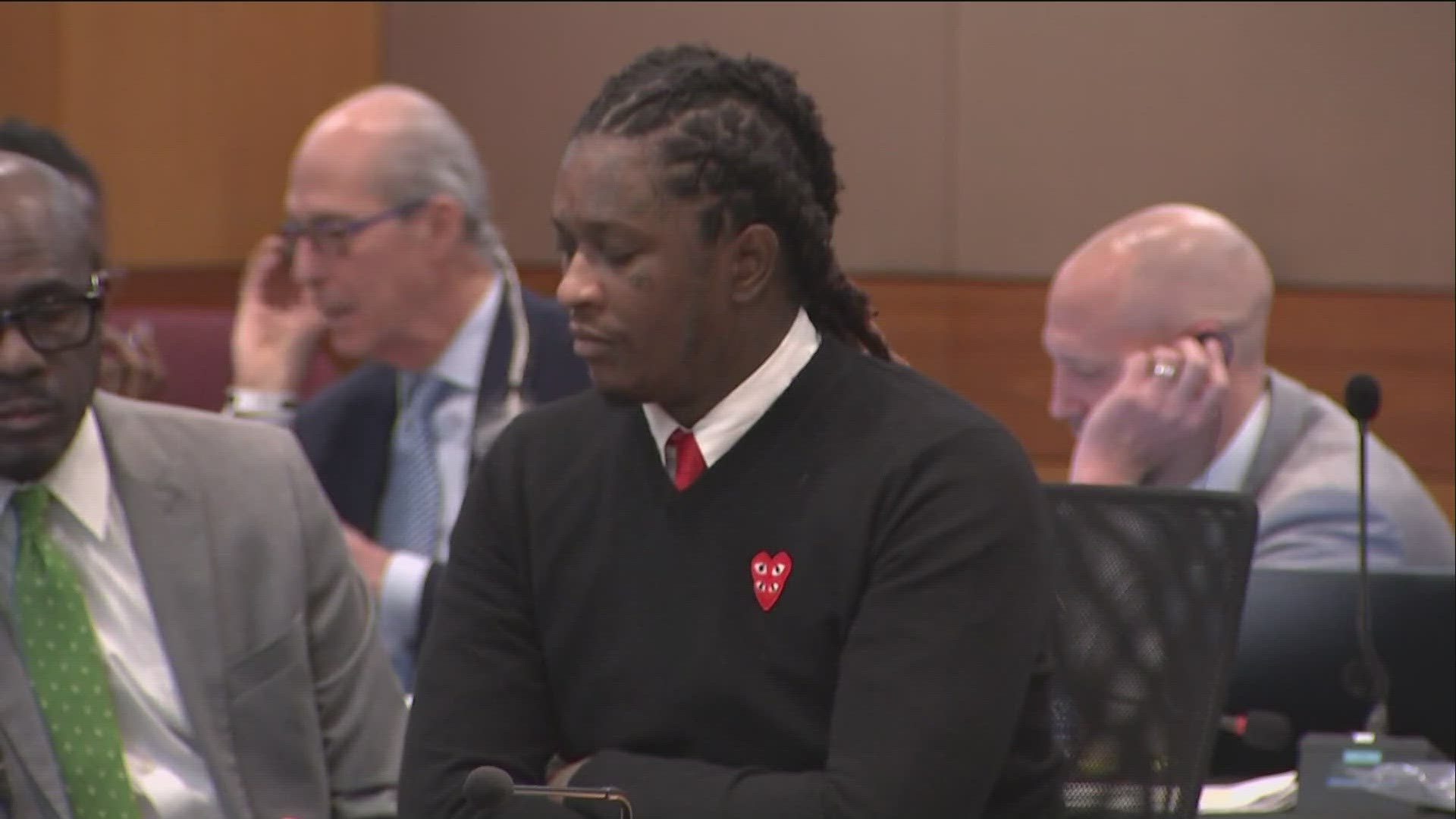ATLANTA — The YSL RICO trial against rapper Young Thug and five other co-defendants resumed this week after a brief hiatus, and with it the question of how the the trial may -- or may not -- be broadcast by media organizations has been highlighted in court.
A motion was filed last week by the State to put certain guardrails on media coverage -- namely, through the livestreamed broadcasting of proceedings and/or recorded videos otherwise posted online -- arguing that, "The escalating menace faced by witnesses testifying in this trial is undeniable."
The filing highlights several examples of what the State says have been instances of retaliation and intimidation of people who have testified so far in the trial -- in particular referencing the chat section of one live stream in which a person wore "we will see u later" and another wrote "Y$L gonna pop by later" as a forensic analyst testified.
It further argues at least two law enforcement witnesses have been doxxed and intimidated.
"The internet (particularly the comments sections of videos livestreamed and posted thereon) is the new Wild West. In a moment, a motivated stranger on the internet can easily have a SWAT team at your doorstep and disseminate all your personal information, including home address and personal telephone number, into the hands of those who wish you harm and who can readily inflict such harm," the State argues. "Moreover, online threats intimidate witnesses whether they are credible or not. The intent behind these threats is clear: to dissuade witnesses from testifying truthfully or testifying at all. This is not coincidence. This is by design. It really is just that simple."
11Alive, along with both other Atlanta news outlets as well as national and international outlets, has covered the trial and streamed proceedings live. The media has been allowed to record with television cameras, and broadcast proceedings live, under Georgia's Rule 22 provisions.
The State's filing argues that Judge Ural Glanville could, and should, place limitations on media organizations' Rule 22 allowances, based on there being a "substantial likelihood of harm... whether that harm outweighs the benefit of recording to the public, and whether the Court has considered more narrow restrictions on recording than a complete denial of the media's requests."
The State's filing offers up three guardrails it would like to see placed on media organizations during the YSL trial:
- "The only recording devices permitted into the courtroom by members of the media must be audio-only."
- "That the Court no longer permit the media to record or publish any visual image of any witness."
- "That the Court prohibit the media from publishing the full names of the victims and witnesses testifying in this case until their testimony is complete. Prior to that, the media may refer to these victims and witnesses by their first and last initials only, and, in the case of law enforcement officers, referring to their rank and/or number."
Judge Glanville has set a hearing for next Friday, Feb. 2, at 3 p.m. to decide on the State's requests.

